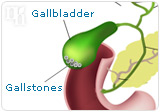
The constant barrage of hot flashes, sleepless nights, and unpredictable mood swings are just a few of the bothersome symptoms many women entering menopause must overcome. It can leave you feeling like you're someone else while your hormones, once a pillar of stability, begin to stop working properly. To help combat the painful symptoms of menopause and replace the hormones naturally, many women are turning to hormone replacement therapy (HRT). Continue reading to find out more about how hormone replacement therapy can help you cope with menopause.
What Is Hormone Replacement Therapy?
Using a combination of estrogens and progestin, which is a synthetic version of progesterone, HRT puts back the hormones that the ovaries have stopped producing. It is not available over the counter, so HRT must be prescribed by a doctor.
Replacing Hormones: How Can HRT Help?
Hormone therapy comes in various forms and combinations ranging from pills and creams to skin patches and vaginal rings. It replaces two key hormones: estrogen and progesterone. Synthetic estrogen is usually prescribed for women who have undergone a hysterectomy. Most women who take estrogen and have not had their uterus surgically removed also need to take progesterone, because when taken together, which is commonly referred to as combined HRT, the risk of endometrial cancer decreases. In addition, synthetic testosterone is sometimes used for women experiencing a loss of libido.
Side Effects of HRT

Besides relief from night sweats, anxiety, vaginal dryness, and sleeping problems, HRT is believed to be relatively safe for most women, but HRT is related to some side effects include: breast tenderness, fluid retention, nausea, and headaches. Women taking estrogen and progestin may also experience irregular periods, which can last a few days.
Although the effectiveness of HRT in alleviating menopausal symptoms has been proven, there are additional risks. These include: blood clots, cardiovascular disease, gallbladder disease, and breast cancer. Women taking estrogen therapy for long periods of time have a higher chance of developing breast cancer. In addition, women with severe menopausal symptoms or those who are at high risk for cardiovascular disease or osteoporosis may need to take supplemental medications such as testosterone.
With so many benefits and risks, deciding whether or not to use hormone replacement therapy depends on your particular needs and circumstances. It is recommended to talk to your doctor to find out whether hormone therapy is right for you. Click here to find out more information about the different alternative to HRT.